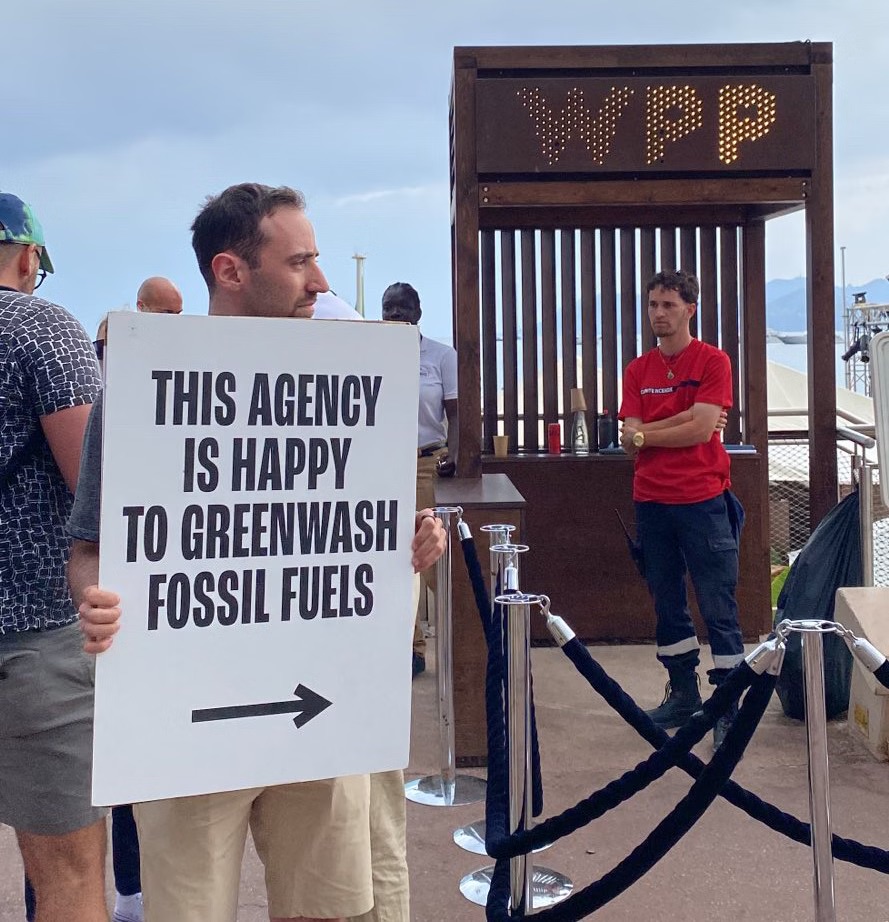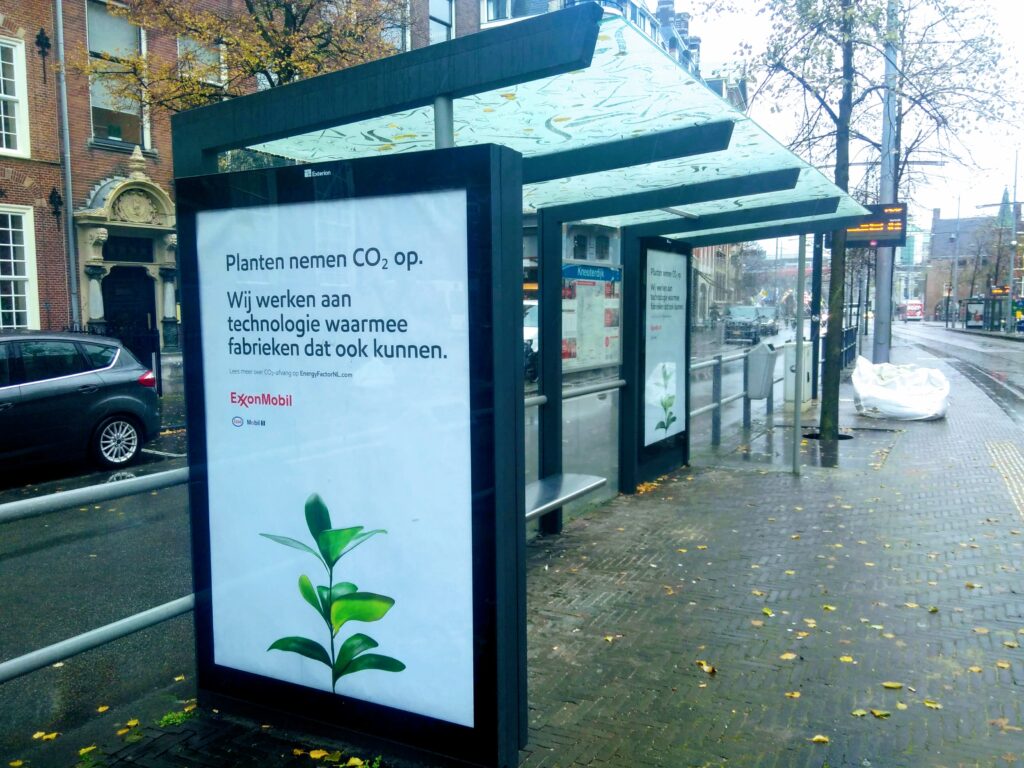The UK’s advertising regulator has banned an advert for French oil giant TotalEnergies about its renewable energy investments for being “misleading,” following a complaint from campaigners that the ad left out information about the company’s overall environmental impact.
However, a Shell advert that received 76 complaints on similar grounds was spared.
The Advertising Standards Authority (ASA) ruled on 9 April that the TotalEnergies ad, which showcased the company’s support of a wind energy company named Nash Renewables, was likely to give the public a misleading impression that most of the company’s energy mix was clean, as it did not include clarifying information about the extent of the company’s fossil fuel business.
The ASA’s ruling noted that in 2023, TotalEnergies allocated 68 percent of its capital expenditure to fossil fuels and 32 percent to lower-carbon energy development that included unproven technologies such as carbon capture as well as renewable energies.
The ad was originally published on X in May 2024, according to the ruling, and was created by the NBC Universal media group, which is owned by Comcast, a United States-based multinational entertainment and telecommunications conglomerate.
In response to a request for comment, TotalEnergies acknowledged the ruling’s conclusion that it must ensure viewers of ads about low carbon initiatives are aware of the company’s broader energy mix.
In the Shell case, the ASA ruled that an ad depicting how the company is “Powering Progress” in the UK provided enough clarifying information about the company’s entire energy mix, including its oil and gas business.
The ad featured Shell engineers working on gas rigs and installing EV chargers. It also included an overlay stating that “[i]n 2023, 68% of Shell’s global investments included oil & gas, 23% included low-carbon energy solutions and 9% non-energy products.”
Veronica Wignall, a co-director of the campaign group Adfree Cities, which made complaints against both ads, said in a statement that the ASA’s ruling on the Shell ad is “endorsing greenwash.”
“Any advert that portrays Shell as prioritizing the environment in any way is categorically misleading while the oil major continues to expand its fossil fuel operations, directly undermining a clean energy transition,” Wignall said in the statement.
A spokesperson for Shell said: “We are pleased that following an investigation, the ASA has ruled that our advert complied with their code. Our campaign shows how Shell is powering progress in the UK, now and into the future and we’ll continue to produce ads which are clear and compelling.”
Shell also said that it engaged with the ASA and advertising clearance advisers Clearcast to ensure the ad followed UK regulations.
The Shell ad was created by ad agency VML, which has worked for Shell since at least 1999, when it was known as Wunderman Thompson.
VML is owned by London-based WPP, one of the world’s biggest ad industry holding companies. Since 2023, WPP or its subsidiaries have held at least 79 contracts with fossil fuel companies among its ad, PR, and marketing agencies, according to research by DeSmog and the campaign group Clean Creatives — more than any other major ad agency.
In February, a coalition of campaign groups including Adfree Cities filed a complaint against WPP with the Organisation for Economic Cooperation and Development (OECD), contending that WPP broke the OECD’s guidelines on climate and human rights through its work for Shell, TotalEnergies, and other major polluters.
Paris-based Havas Media was the agency in charge of placing the “Powering Progress” ad.
Havas Media and its parent company Havas have regularly come under fire from campaigners after the agency won the Shell media-buying contract in 2023, despite Havas CEO Yannick Bolloré making numerous public statements about the company’s commitment to climate action. Four Havas agencies lost an accreditation for socially responsible businesses – known as B-Corp – as a result.
Along with several other major oil and gas companies, Shell has rolled back spending on clean energy in the past two years in favor of greater investment in its oil and gas business. Shell CEO Wael Sawan has said this is because the returns on clean energy development have been too low.
“If we cannot achieve the double-digit returns in a business, we need to question very hard whether we should continue in that business,” Sawan said during an earnings call in early 2023. “We want to continue to go for lower and lower and lower carbon, but it has to be profitable.”
In response to the Shell ruling, Victoria Harvey, a doctoral student at the University of East Anglia who researches sustainability in the UK advertising sector, criticised the ASA for having “failed to update their codes in the light of a climate emergency.”
“Until that changes, the very clear and significant harms from allowing adverts like this to be aired will perpetuate,” Harvey said.
In response, ASA media and public affairs manager Matt Wilson said that “our Codes ban irresponsible and misleading advertising, and we are not clear on what updates to the Codes are being suggested.”
The ASA has banned many advertising campaigns by major multinational corporations “for making misleading environmental claims” in recent years, said Wilson, adding that “In several cases, this has been in response to complaints lodged by environmental campaign groups and we have and continue to act without fear or favour.”
Among those, in June 2023 the ASA banned an earlier Shell “Powering Progress” ad made by VML for overstating the size of Shell’s clean energy business in relation to its core oil and gas activities.
In 2024, United Nations Secretary-General Antonio Guterres urged advertising and PR agencies to drop their oil and gas clients, saying that they have “aided and abetted” the fossil fuel industry in misleading the public about climate change. He also called for a worldwide fossil fuel ad ban.
A number of cities, councils, and regions around Europe have begun introducing restrictions on advertising of high-carbon products and services, including The Hague in the Netherlands.
A recent study found that a majority of EU citizens would support a ban on fossil fuel advertising.
ASA spokesperson Wilson said that the agency does not have an official position on fossil fuel ad bans, as its “role is to ensure that the content of ads where they do appear are truthful and responsible.”
NBCUniversal, VML, WPP, and Havas have been approached for comment.
UPDATE (9 April 2024) – This article has been updated to include statements from Shell and TotalEnergies in response to DeSmog’s requests for comment.
Subscribe to our newsletter
Stay up to date with DeSmog news and alerts







